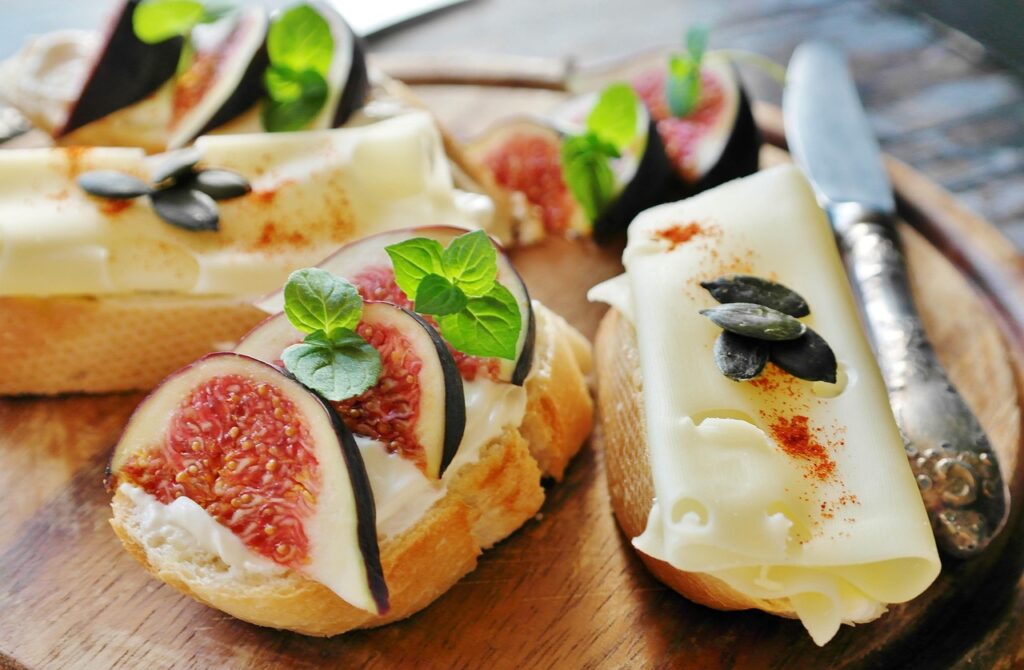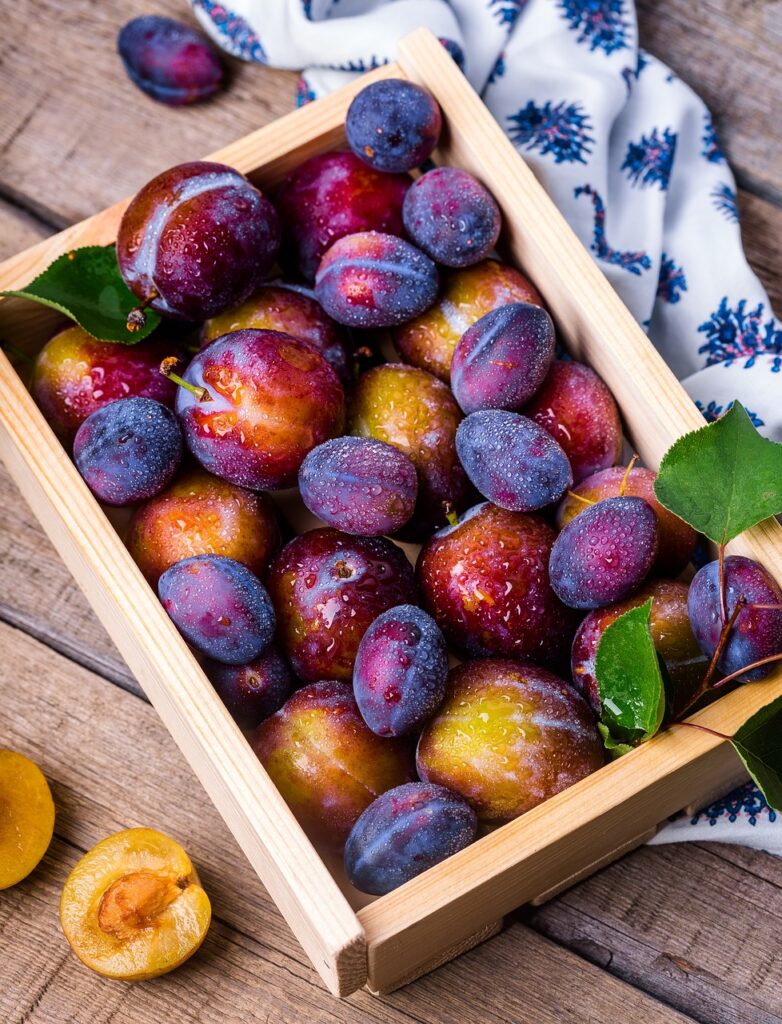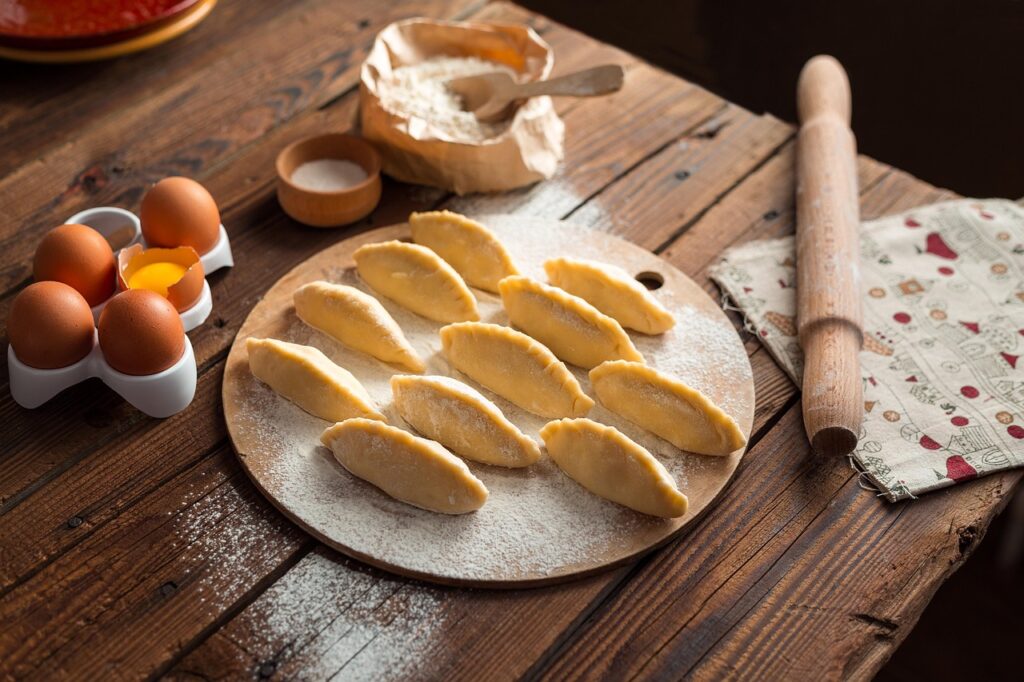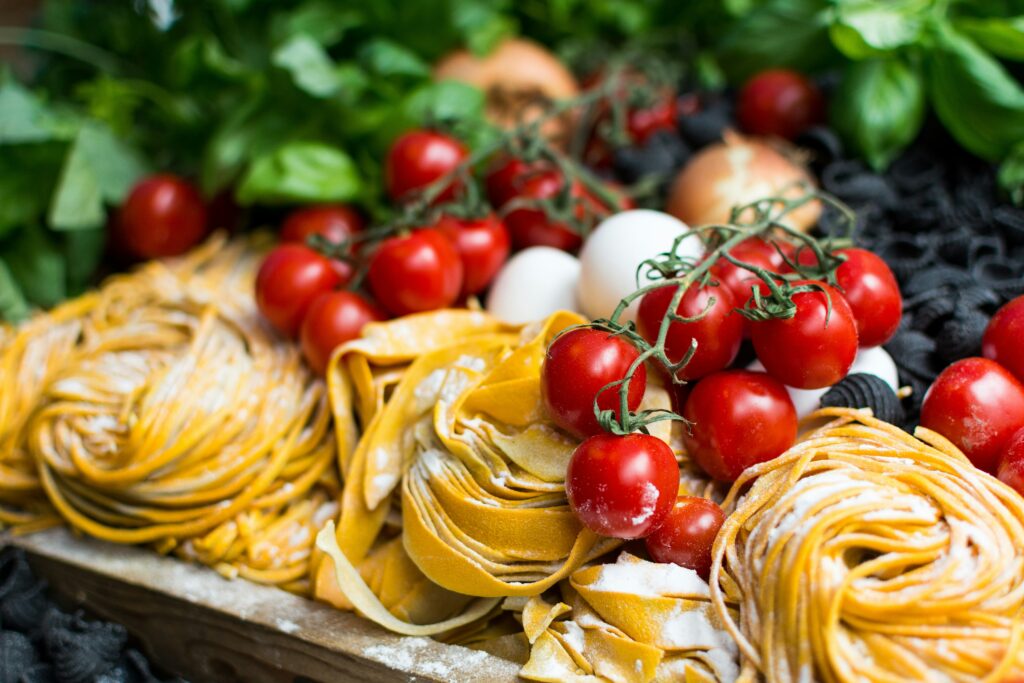There’s a reason why Mediterranean cuisine has been celebrated for centuries — not only for its taste, but for the calm and connection it brings to those who share it.
It’s not a diet; it’s a rhythm.
A slow, sensual relationship with nature, seasonality, and community.
In a world that moves too fast, Mediterranean food invites us to return to simplicity — to rediscover nourishment as an act of love.

More than food: a way of being
The Mediterranean table is not about perfection or restriction.
It’s about abundance, color, and generosity. Olive oil poured without counting, herbs picked by hand, vegetables roasted slowly until their sweetness emerges. Each ingredient tells the story of the land — sun, salt, wind, and patience.
What makes this way of eating powerful is its honesty.
There’s no obsession with macros or superfoods.
Instead, it’s grounded in balance: grains and greens, seafood and legumes, pleasure and moderation.
The act of preparing and sharing a meal becomes a meditation on gratitude.
The art of slow nourishment
In the Mediterranean, meals are rarely rushed.
Lunch is an event; dinner, a conversation. The table is where time expands. Eating slowly allows your body to actually register satisfaction — it’s the simplest antidote to overconsumption and stress.
Slowness has physiological effects: it improves digestion, balances hormones, and supports the microbiome.
But beyond biology, slow eating teaches presence. You notice flavor, texture, the warmth of company. Food becomes an experience, not a task.

Ingredients that heal
Every culture around the Mediterranean shares the same core ingredients — olive oil, legumes, seasonal vegetables, nuts, herbs, and fish.
Each one supports the body naturally:
- Olive oil nourishes cells and reduces inflammation.
- Legumes provide steady energy and stabilize blood sugar.
- Herbs like rosemary and thyme stimulate circulation and digestion.
- Fish brings omega-3s, essential for brain and heart health.
But perhaps the true healing ingredient is sunlight — absorbed by plants, transferred to us with every bite.
Eating as connection
In the end, what makes the Mediterranean way of eating so restorative isn’t just what’s on the plate — it’s how it’s shared.
Meals are communal People sit, talk, laugh, pass the bread.
That simple human connection is one of the strongest predictors of longevity and happiness.
When we eat in tune with nature and each other, food becomes more than nourishment — it becomes belonging.



